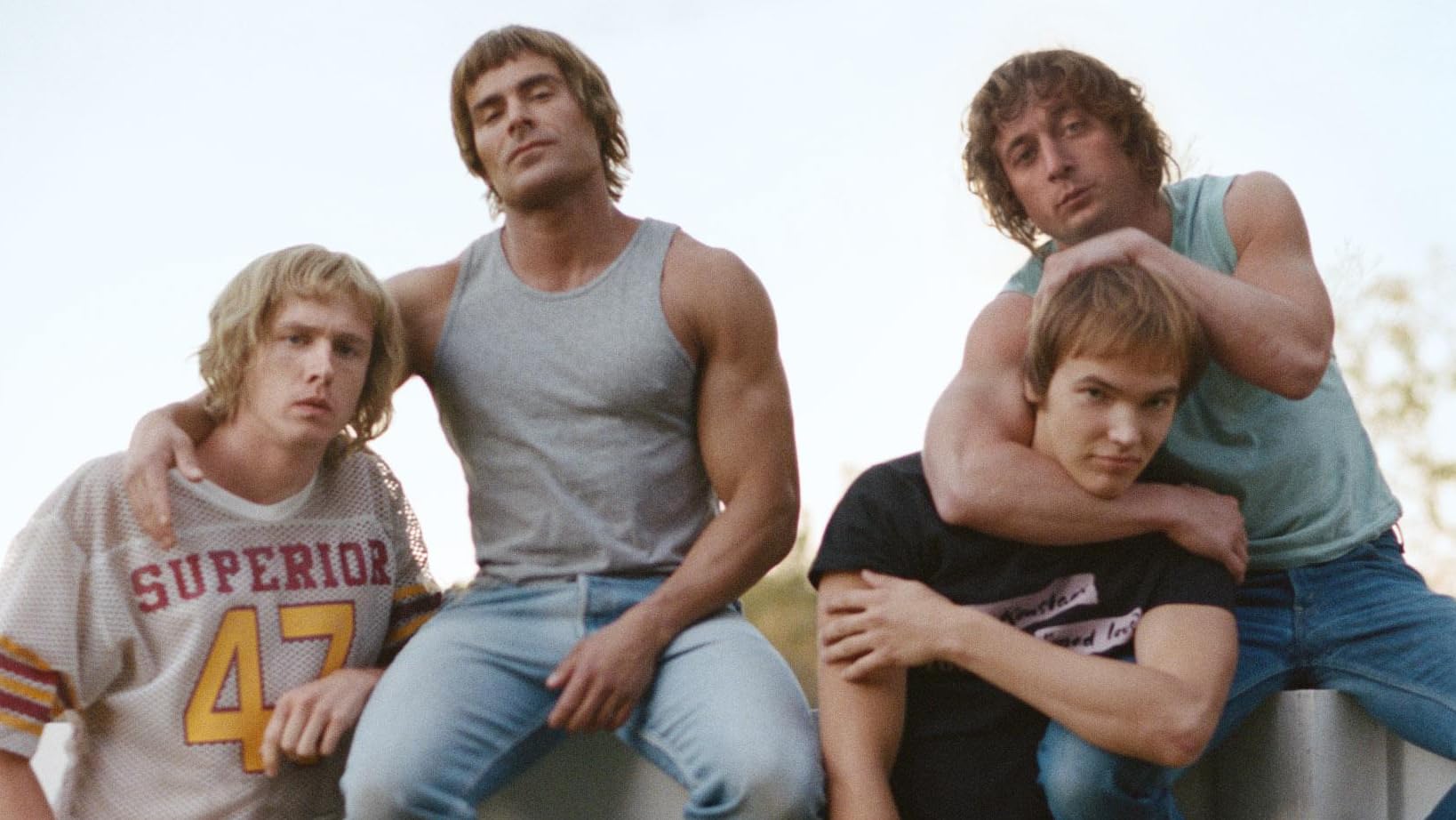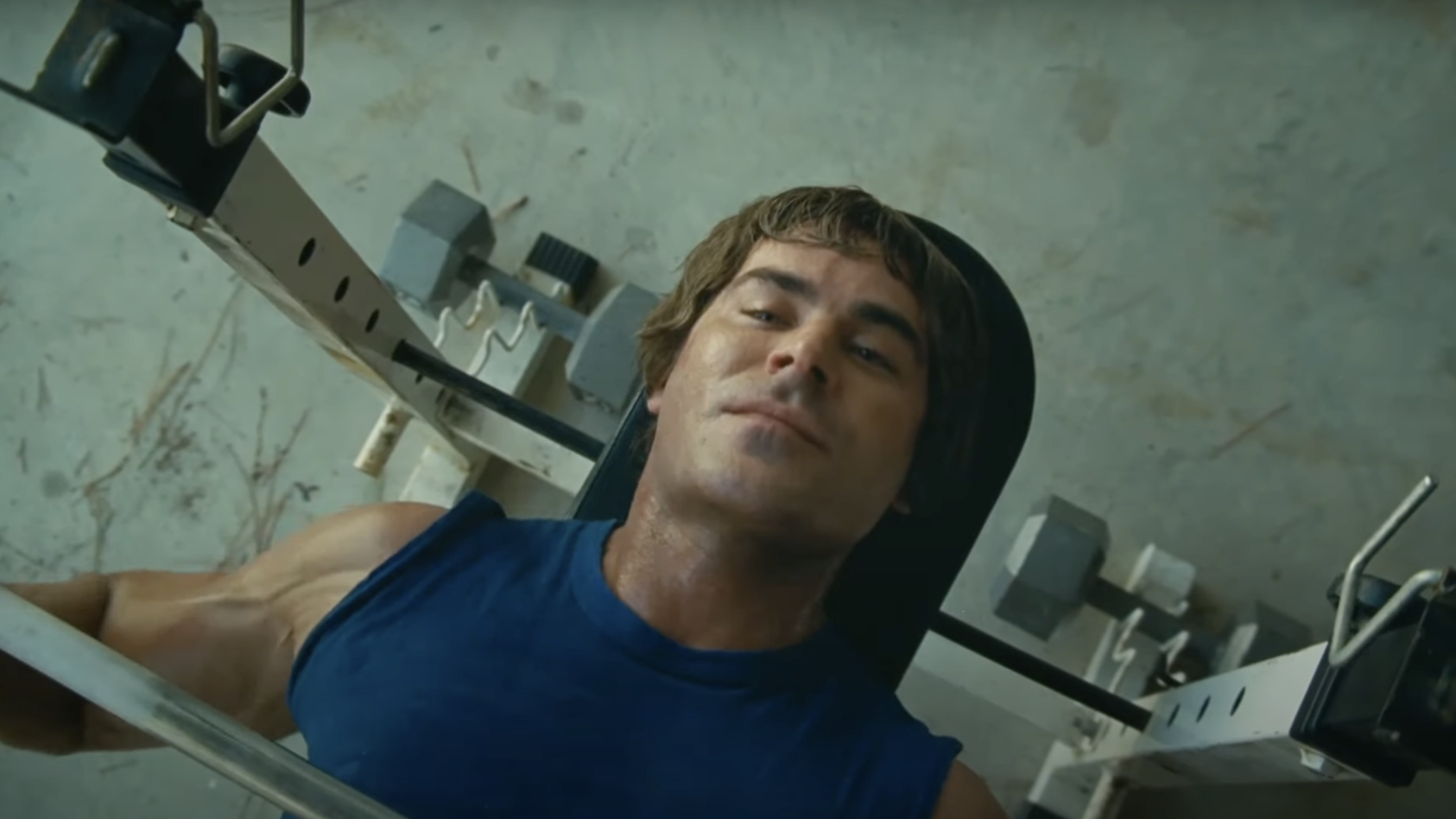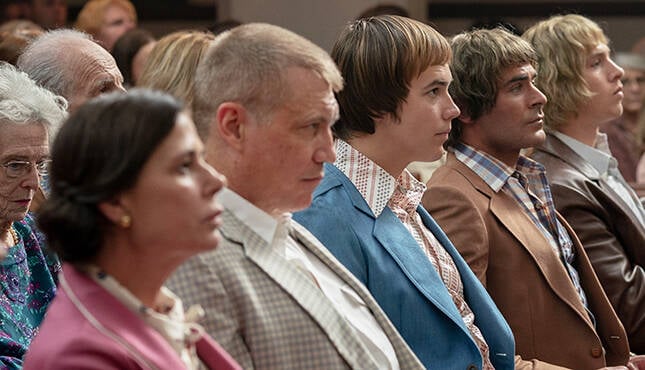Some true stories just beggar belief. Some true stories have enough wild, unlikely details that while watching them, you mistake those details for the fantastical fabrications of a screenwriter. And if you don’t know the story is true until they inevitably show the pictures of the real people over the closing credits, you blame those fantastical fabrications for why you’re not digging the movie.
Such was at least one critic’s experience with Sean Durkin’s The Iron Claw, the story of a family of wrestlers called the Von Erichs, whose four sons each attempted a professional wrestling career, like their hard-driving father, but whose snakebitten luck prompted rumours that the family was cursed. Merely documenting the succession of tragedies, which it does not serve to spoil here, seems like piling more and more atop a sick joke. And yet the fact that some variation on this, with mild liberties taken for dramatic licence, was the real experience of this family does not make the experience of watching the movie feel any more true.
Holt McCallany plays paterfamilias Jack “Fritz” Von Erich, a one-time American football prospect who flamed out as a younger man, then set his laser focus on professional wrestling. Now an older man, he has four grown sons all trying to follow in his footsteps: Kevin (Zac Efron), David (Harris Dickinson), Kerry (Jeremy Allen White) and Mike (Stanley Simons). Before a single one of them has their dreams dashed in some way, their mother Doris (Maura Tierney) already looks like she’s been carrying heavy weights attached to her eyelids. Perhaps the religious woman still has not fully recovered from the childhood death of a fifth Von Erich brother, Jack Jr., her firstborn, who drowned when he was just six.
That boy’s death led people to talk about a Von Erich family curse, a superstition that at least oldest living brother Kevin fully believes. The most intimidating physical specimen with a jaw that looks like it was chiselled by Rodin, Kevin nonetheless stalls out in his attempt to make the big time after winning a state of Texas championship. He doesn’t handle a mid-fight ejection from the ring in a composed way, at first unable to move after he landed wrong, and the scripted victory has to be saved by his brother David, who jumps in the ring for the obligatory post-fight trash talk. That’s all it takes for Fritz to turn his attention to the next son on the list, a pattern that will repeat with alarming frequency.
The Iron Claw’s first sick joke is the transformation of Zac Efron’s body. The once-scrawny actor may have done all the work from the neck down, such that he’s so bulky he can scarcely relax his arms at his sides, but his face has been artificially puffed out to a Frankenstein’s monster degree. Fortunately, the distraction of his physical appearance is lessened by the sensitive performance he’s giving. He makes a lot bigger impression than the other three brothers, most criminally in the case of Jeremy Allen White. It’s almost as though the breakout star of The Bear demanded to be paid per line of dialogue, as the film takes one of its best assets and thoroughly sidelines it. This is a shame, because Kerry Von Erich’s story is potentially the most interesting: a world-class discus thrower who turned to wrestling only after the U.S. boycotted the 1980 Olympics held in Moscow.
The 1980s setting is recreated well here, and it’s not just the flowing locks of the Von Erich boys. We get terrific early-stage TV graphics to advertise the brothers’ various matches, and even a brief look at flamboyant champion wrestler Ric Flair, played by Aaron Dean Eisenberg with a perfect amount of preening disdain. The Iron Claw does transport you to a time when wrestling was a more mainstream part of popular culture, the drive to succeed in this arena a more mainstream ambition.
Success in professional wrestling, though, is not about who has the best moves to pin their opponent. Remember, this is all scripted. When Kevin’s future wife Pam (Lily James) first uses the dread F word – fake – he genially tries to explain that winning belts is more like a job promotion. If he can shape his body and his persona into the sort of character fans cheer for, he’ll become a true sort of champion.
This is all well and good. Where The Iron Claw loses us a bit is its depiction of its actual truths, which come across like the scripted lies of a wrestling match. It’s hard to know what method would have been more credible, or what method would have tempered the truth with a sort of plausibility that would have made it all more impactful. Better character development? A greater balance between documentation and interpretation? Then again, the one moment near the end when the film strays from realism into something more fanciful, it is the film’s most unintentionally comical scene, relying on an intimacy with these characters that the film forgot to give us.
Is the solution, counterintuitively, not to tell the stories that seem ripest to make into movies? That can hardly be, but the crazier the details, perhaps the higher the standard to get the filmmaking just right. We know there’s supposed to be a curse and we know to expect the unexpected with a curse. Durkin, therefore, lays the groundwork for success … he just doesn’t succeed. Most of what you’re looking for is there in The Iron Claw, except a really good film’s X factor that enables you to believe the unbelievable.
The Iron Claw is currently playing in cinemas.



